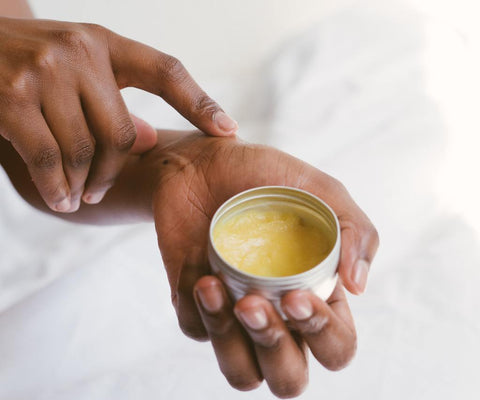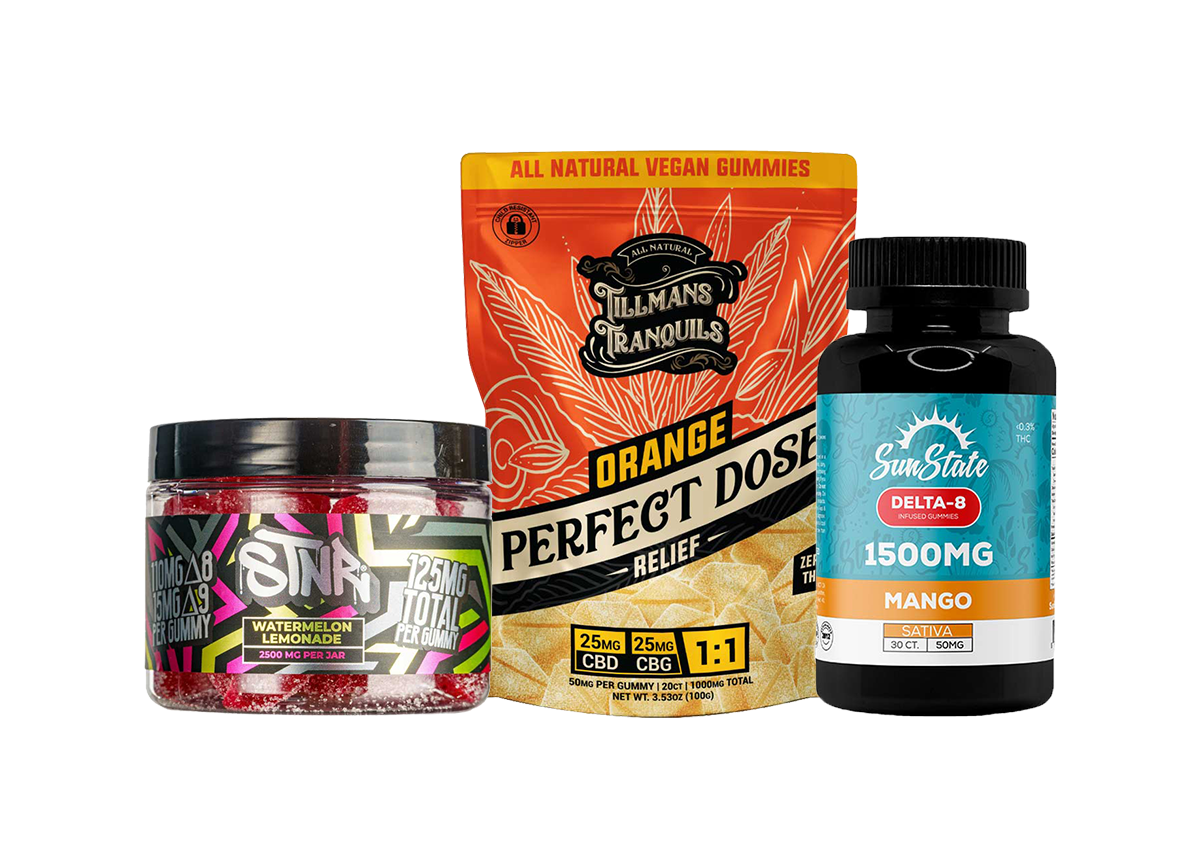Every Question You Have About CBD…
What is CBD? Is CBD legal? Does CBD get you high? What are the actual benefits? Will it show up on a drug test? Here's everything you need to know about the product that's suddenly everywhere.
CBD is the new hot product of 2020 and many more years to come. Gas stations sell CBD gummies, spas offer CBD massages, and coffee shops put CBD in lattes. Your weightlifting buddy uses CBD after a workout, and your grandmother wants it for her arthritis.
But what is CBD? And how do you know what you’re buying is legit?

CBD is a safe, non-addictive substance.
More specifically, CBD, short for cannabidiol, is a chemical compound from the cannabis plant. It's a naturally occurring substance used in products like oils and edibles to impart a feeling of relaxation and calm. However, CBD is not approved by the FDA and cannot cure or treat health conditions. Unlike tetrahydrocannabinol (THC), it's not psychoactive; it will not get you high or stoned!
Because CBD is non-intoxicating and therapeutically potent, as well as easy to consume, CBD is an appealing option for those willing to try cannabis as an alternative to pharmaceuticals.
Are you sure CBD won't get me high?
Yes. The cannabis plant is made up of two leading players: CBD and THC. CBD is the non-psychoactive part of the plant, which means you won’t have any of the effects like “feeling high” or euphoria that you feel from smoking marijuana. Of course, if your body is hypersensitive, you may react differently to CBD.
Because the FDA doesn’t regulate CBD, checking the quality of the CBD you purchase is essential. It is possible to buy a CBD product that is more or less potent than advertised, may or may not even contain CBD, or even include more than the legal amount of THC. CBD isn’t cheap, so be wary of what you’re buying.
What are the health benefits of CBD?
Today, only one CBD medication is FDA-approved - Epidiolex - which is used to treat epilepsy. However, there is much ongoing research on the positive effects of CBD on pain, arthritis, inflammation, and mood. However, again it has not been approved by the FDA and CBD cannot cure or treat any medical condition.
Should I try CBD for pain management?

There has been much research to show that both musculoskeletal and nerve pain could benefit CBD. However, this research has yet to be approved by the FDA. Also, what may work for you may not work for someone with similar symptoms. CBD has also been shown to provide muscle recovery post-working out.
What's the best way to take CBD – edibles, tinctures, or topicals?
That depends on your personal preference and why you are using CBD.
If you don’t want to ingest CBD, then utilize a topical CBD cream or ointment. You can apply a CBD topical to muscles, joints, and ligaments to get a localized feeling of relief.
The most significant difference between tinctures and edibles is how long the CBD takes and how long the effects last. Tinctures take effect faster, especially if you place them under your tongue for approximately one minute before swallowing. Tinctures usually last four to six hours, while edibles can last much longer, depending on the product. The effect of the gummy bear usually lasts four to six hours, while our Daily capsule has time release for a 24-hour impact.
What should I look for when shopping for CBD products?
Everywhere you look these days, someone is selling CBD oil. Whether it’s your local gas station or the bodega on the street corner. Hundreds of CBD brands are in the market, adding new ones daily. It is essential to do your research and purchase CBD from a trusted vendor. Things to look out for:
Has CBD been third-party tested?
Confirm any CBD product you purchase has been tested by a third party. Studies show that less than 25% of the CBD on the market has been tested. Third-party lab testing is available upon request for all our products. We have requested and reviewed third-party testing from every manufacturer whose product we sell.
Does CBD cure disease?
Claims that CBD can cure diseases should be approached with skepticism. While research suggests potential relief from specific symptoms such as pain, stress, and insomnia, it has not been FDA-approved as a cure for any diseases.
Where to Buy CBD?
In many states, you can find CBD products in shopping malls, convenience stores, and coffee shops. But when in doubt, purchase from a site you can trust.
We place pride and trust in the products we sell. Each product went through a vetting process to make it on our site, so we only carry a limited number of products.
That all sounds good, but is CBD legal?
Let’s start from the beginning, shall we? Industrial hemp was legal in the United States until Congress passed the Marihuana Tax Act in 1937. Then, the 2014 Farm Bill said that states could regulate hemp production and, as a result, CBD. Then, last year, in December 2018, President Trump signed a new Farm Bill that makes it federally legal to grow hemp and use hemp products, including CBD.
In other words, the latest bill removed hemp from the Drug Enforcement Administration, or DEA's, purview.
Can you travel with CBD?
Thanks to the 2018 Farm Bill, you may travel within the USA with legitimate CBD products (below the legal limit of 0.3 percent THC). Beware if you are traveling with tinctures. TSA will still impose the 3-ounce liquid rule that you may carry on airplanes.
If you plan to travel internationally, check the laws of the country you are visiting.
Will CBD show up on a drug test?
If you are buying CBD with less than 0.3 percent THC or no added THC, then you should pass a drug test unless you are consuming an enormous amount of CBD. However, you should exercise caution when purchasing CBD. Even though the seller may state no THC, you should confirm. Third-party labs have tested our products to ensure that the THC levels are below the legal limit of 0.3 percent. If you are concerned, our Panacea FAST tablets and Royall gummy bears have no THC.
Final Thoughts
CBD is relatively new, and there are a lot of questions about it. Hopefully, we helped answer some of your questions. If you have additional questions, drop them in the comments!
Author: Shereen Kassam
Date: October 02, 2019
Rating: 4.8 / 5
Category: CBD TInctures, CBD Topicals, CBD Edibles,

